Someone pointed out to me how at this time of year in the Northern Hemisphere, the trees are bare and you can see through them. At the retreat house I work at, there is a deck that overlooks a river. Right now you can very easily see the river below. But during the summer, the trees are so full that you wouldn’t know the river was there. The absence of the leaves reveals something else behind the trees. It’s a great metaphor for this time.
Apocalypse
Many have described this pandemic as apocalyptic. And the word apocalypse is not about some catastrophic Armageddon. It comes from the Greek word that means to uncover or reveal. So the pandemic has been a revelation of sorts, an uncovering of what truly matters. It has revealed the brokenness of our systems and our human nature, our resistance to care for the common good, our privilege, but also the deep desire to care for our neighbour and to be in relationship. How fitting for the Advent and Christmas season when we reflect on the promise of God’s revelation, both through Jesus and the coming of God’s kingdom (a new heaven and a new earth, as the Book of Revelation speaks of).
Lately, I find what this time has revealed is a deep tension between poverty and abundance. We have a God of abundance who loves abundantly, pours out grace and mercy abundantly, and offers images of heavenly feasts. At the same time, Jesus Christ represents the humility of poverty, both materially and spiritually—and call us to it.
Poverty and Abundance
As a parent, the poverty of this time is quite noticeable for me. There are fewer places I can safely take my kids to entertain them, we can’t go to out to a restaurant as a family, go to the movies, see friends, and their grandparents can’t travel to see them. This time also taught me the poverty of cutting my own hair and giving up things I really don’t need, like a manicure. But those things seemed important until an encounter I had the other day.
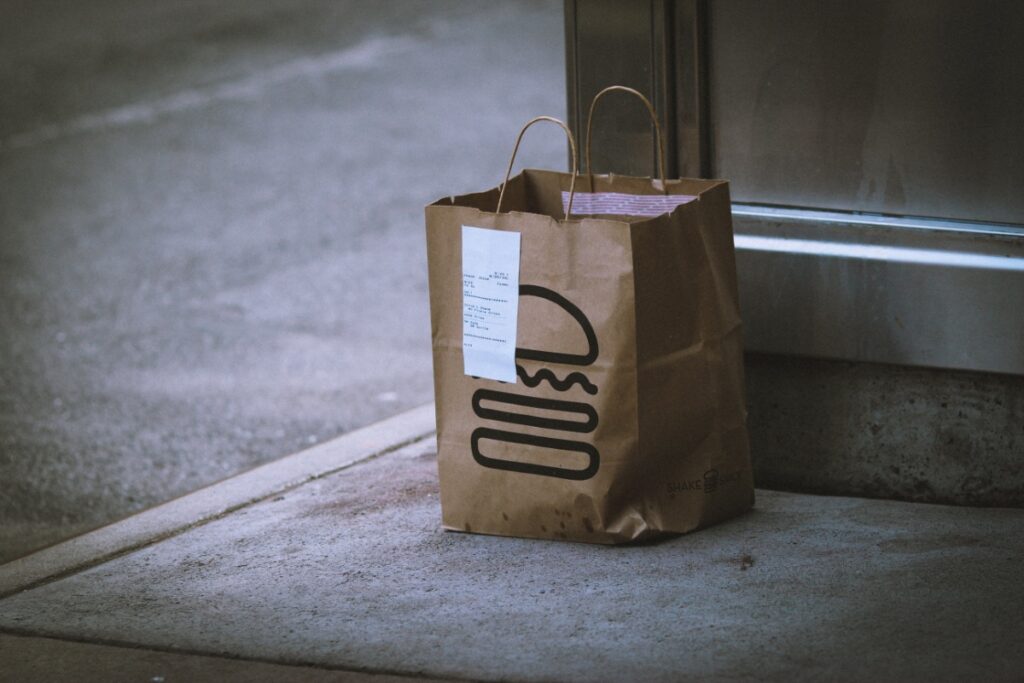 There is a woman I encounter sometimes at church. She is HIV positive and often struggles to pay her rent or utilities. Sometimes she is between housing and doesn’t have a place to go. Her teenage daughter is pregnant and now she needs to provide for her in a new way. I imagine how much more challenging the pandemic is for those without housing or food security.
There is a woman I encounter sometimes at church. She is HIV positive and often struggles to pay her rent or utilities. Sometimes she is between housing and doesn’t have a place to go. Her teenage daughter is pregnant and now she needs to provide for her in a new way. I imagine how much more challenging the pandemic is for those without housing or food security.
The other evening I drove to a French restaurant to pick up some dinner for a date night my wife and I had planned at home. As I sat curbside waiting for the food to come out, the woman walked by, saw me, and knocked on my window. She told me her latest update and struggle to pay rent, and then she told me how she won’t have a Christmas this year. There won’t be any gifts or any special meal. And she has found no help for that. I gave her the few bucks I had and then as we were talking, a person from the restaurant came out and passed my bag of dinner to me through my car window. It was in that moment that I felt a new apocalyptic moment, where the leaves had fallen aside and I could see more clearly. I could see my privilege, of getting takeaway, of sitting in a warm car, of being able to go home to a loving spouse for a date night. Not having Christmas was never a concern for me, even though my family can’t travel to visit. Even in the pandemic, many of my normal comforts were still with me. In fact, we seem to have more access to abundance and convenience, like curbside pickup, easy grocery delivery, or on-demand movies. There’s no longer a concern about having enough toilet paper. I was back in my privileged mode of consumption, yet I was face-to-face with a woman who didn’t really know what the next day would bring her.
Contentment
St Paul writes, “I have learned to be content with whatever I have. I know what it is to have little, and I know what it is to have plenty. In any and all circumstances I have learned the secret of being well-fed and of going hungry, of having plenty and of being in need. I can do all things through him who strengthens me” (Philippians 4:11-13). The Message translation renders his words this way: “I’ve found the recipe for being happy whether full or hungry, hands full or hands empty. Whatever I have, wherever I am, I can make it through anything in the One who makes me who I am.”
In a recent op-ed in the New York Times, Pope Francis said something that spoke to that apocalyptic moment for me in the car: “We have to let ourselves be touched by others’ pain.”
I think Paul could be at such a balance about poverty and abundance because he had experienced pain and been in solidarity with those who suffer. He moved through both of these poles with freedom, never once clinging. As Ignatius says in his Principle and Foundation, we ought not cling to riches or poverty. Paul can hold the tension of poverty and abundance because he knows what truly matters is God’s grace.
Hidden Pandemics
In his piece, Pope Francis wrote, “We put on face masks to protect ourselves and others from a virus we can’t see. But what about all those other unseen viruses we need to protect ourselves from? How will we deal with the hidden pandemics of this world, the pandemics of hunger and violence and climate change?”
The hidden pandemics of the world need to be uncovered and shown if we’re going to move toward the promise of God’s kingdom. What did Jesus do but uncover and reveal? – The hidden pandemic of apathy and division, legalism and oppression, the broken systems, the lies. He revealed how we cling to abundance and oppress people into poverty; and how we play-act the virtues of poverty, never allowing ourselves to feast on God’s gifts. But he also uncovered the truth of love, and care for neighbour, and mercy.
The darkness of the Advent season represents the poverty of life’s necessary sufferings that we must experience and pass through in order to embrace fully the abundant promise that reveals itself anew at Christmas. Like Paul, we must have open eyes in order to see that contentment ultimately comes from God. Sometimes it takes a apocalypse to see this.
How have the trees been made bare for you this year? What do you see through them? What has been revealed?
Related posts:
Listen to the podcast version of this post…
Music by Kevin MacLeod

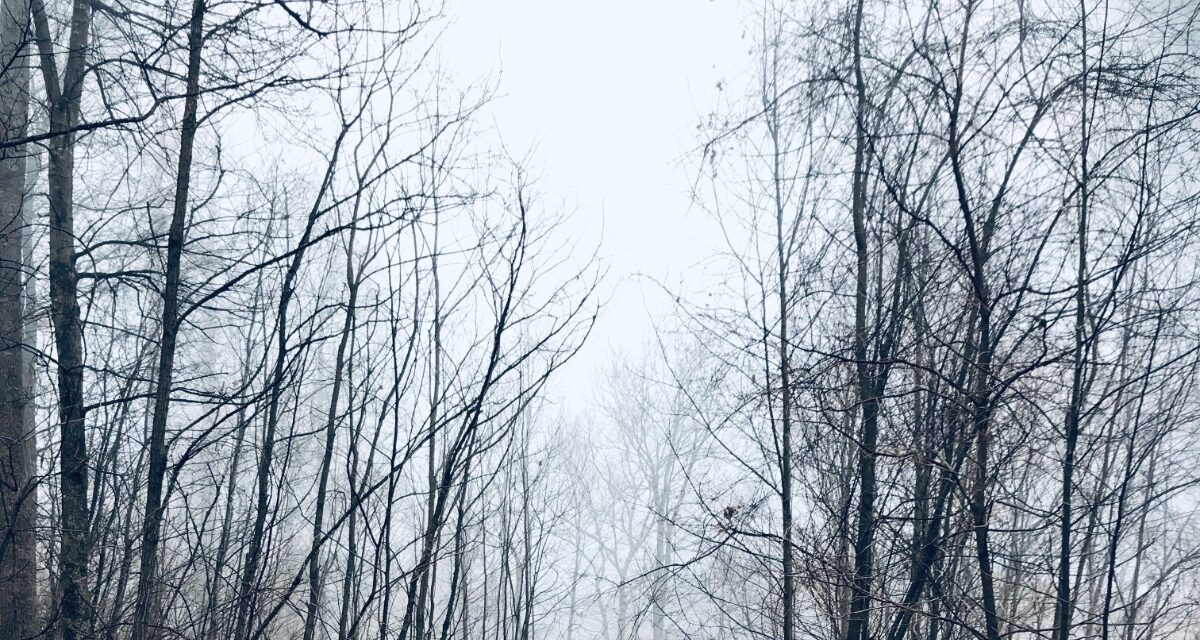
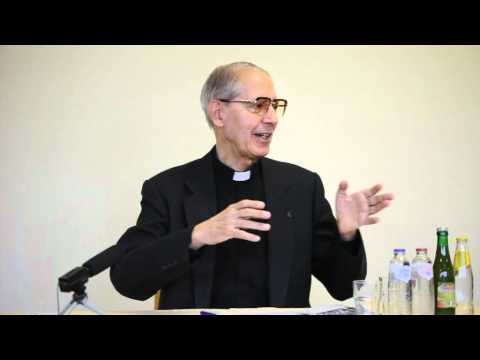
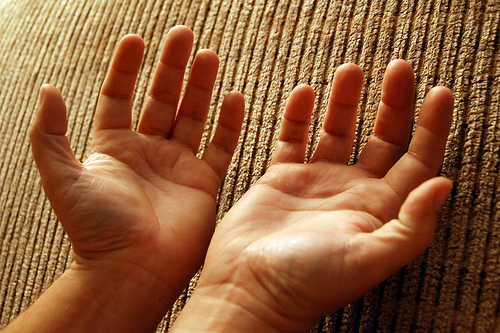

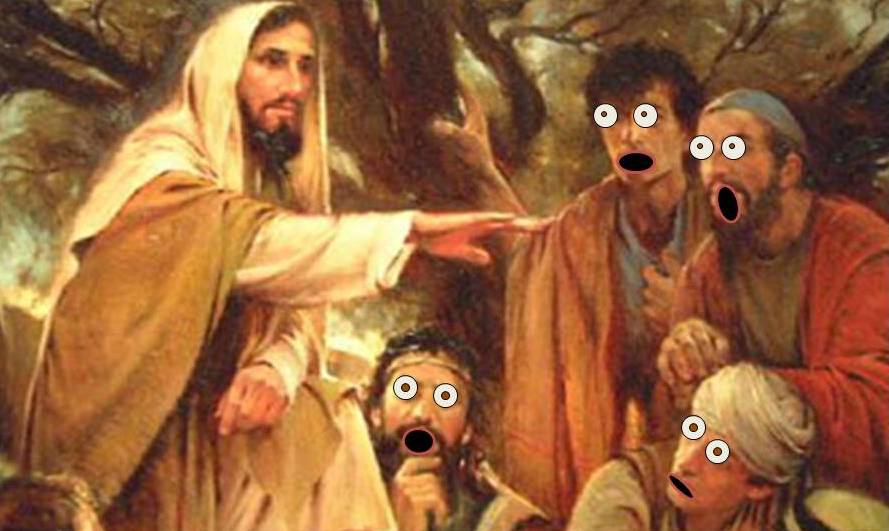



Andy, I’ve been following God in All things for a few years now and read just about every one of your posts. I believe this is one of the most powerful, most thought provoking and soul searching inducing one I’ve ever read. Thank you and God Bless!
As always beautifully written.
Andy, thank you for reminding me of how privileged and fortunate I am. I was beginning to feel sorry for myself and letting my sadness over missing my family for Christmas override my gratitude. I needed your story right at the moment I received it. The Holy Spirit is ever present, right?
So very much needed this today. Beautiful! Thank you!!!